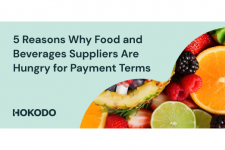Food manufacturers face ‘four key challenges’

The other three challenges singled out by the DEFRA boss included: responding to consumers’ changing consumer demands, delivering export-led growth and making the most of Brexit.
“There are lots of things we need to focus on to increase productivity in the food and drink sector to be able to grow,” Render told a seminar at Food Matters Live last Thursday (November 24).
Boosting productivity depended upon recruiting more apprentices and encouraging innovation and research. “We need more apprentices and more people taking up STEM [science, technology, engineering and maths] subjects,” he said.
The sector also needed continued innovation and research, in order to drive productivity gains. While acknowledging the sector’s commitment to new product development – with more than 10,000 new food and drink products launched annually – smaller-scale food and drink manufacturers needed particular help to translate research into business benefits.
Productivity was a challenge
Render said boosting productivity was a challenge for the whole of British manufacturing. “Compared with many of our G7 [advanced economy] countries, our competitivity is lower. It’s uneven across the UK across all sectors and there’s a real challenge to increase that.”
The second challenge facing food and drink manufacturers was responding to consumers’ changing demands on things like minimising food waste. “On food waste, big things like innovation, [improved] logistics, ingredients and packaging help. That’s one of consumers’ top priorities,” said the DEFRA boss.
“But the real challenge is around health and particularly obesity, involving the reformulation of products to reduce sugar, fat and salt.”
That process required “hard-edged research”, but, compared with overseas firms, the UK’s innovative food and drink industry enjoyed a competitive advantage, he said.
‘We are a bit behind the game’
The third challenge was delivering export-led growth. “We are a bit behind the game, with fewer than one in five of our food companies exporting,” said Render. Boosting British food and drink exports was a huge opportunity because of the respect enjoyed by our brands, he added.
Brexit was the fourth challenge facing the sector. “That’s a huge part of my role; to pull together for the government what that means for the food and farming sector,” he said.
The DEFRA boss added: “For all the work to boost the productivity of the industry, it is really critical to respond to and seize the opportunities that come from Brexit – especially on trade."
Render was speaking at the seminar 'The future of food manufacturing', chaired by Jonathan Dimbleby, the presenter of BBC Radio 4’s Any Questions? programme.
Food manufacturers’ four challenges
- Boosting productivity
- Responding to changing consumer demands
- Delivering export-led growth
- Brexit





















